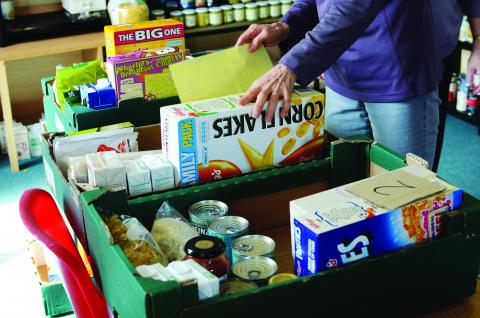08 June 2022
Children missing out on Free School Meals

New data out today shows 1.9 million children are currently eligible for Free School Meals
New data from the Department for Education published today shows that 1.9 million children (22.5%) in England are eligible for Free School Meals (FSMs). This is an increase of 160,000 pupils since last academic year showing that more children are living in households on very low incomes1. Being eligible for FSMs allows children to buy food and drink at school to the value of £2.30 each day and also opens up free access to the HAF (Holiday Activities and Food) Programme which provides food, activities and childcare for children eligible for FSMs during the school holidays (six weeks per year, four days per week). These schemes are vital nutritional safety nets for children in low-income families.
Large numbers of children in need are missing out on Free School Meals and Holiday Activities Programme
Despite this increase in numbers on Free School Meals, many children in need are still missing out on support from this scheme. Currently there are very tight eligibility criteria to have the opportunity to benefit from FSMs in England: children must be in families on qualifying benefits and earning less than £7,400 after benefits and tax. This incredibly low income threshold means that there are substantial numbers of children who are living in households that don’t have sufficient income to buy food alongside other essentials, and yet do not fall within the criteria to receive a free lunch at school.
New CPAG analysis estimates that 1 in 3 school-age children in England living in poverty (800,000) are missing out on Free School Meals3. A survey commissioned by The Food Foundation in April found that 19% of households with children had experienced food insecurity in the past month4. This clearly illustrates there are large numbers of children in need of FSMs who are missing out.
More children in England are missing out than children in the devolved nations
Children in England are subjected to the strictest eligibility criteria for FSMs and holiday provision out of all the devolved nations in the UK. Scotland and Wales have both committed to expand eligibility for FSMs to all children in primary school regardless of income and are in the stages of rolling this out. Wales also has a discretionary free school meal fund which allows schools to provide a free meal to pupils who come to school hungry regardless of their eligibility. Northern Ireland’s income threshold for eligibility for FSMs is almost twice as high as in England (£14,000 annual earnings), and they are exploring options for expanding this further. This means children in England are being unfairly left behind because the UK Government is failing to take the issue of children’s food insecurity as seriously as the devolved Governments.
Children slipped through the net in the recently announced cost of living measures
Not only are many children at risk of food insecurity missing out on FSMs, but the recent support package announced by the Chancellor to address the cost of living crisis neglected to provide any support directly for children. Our research shows that households with children (particularly large housholds) are more likely to be at risk of food insecurity than those without children and therefore, targeted provision is required to ensure this subgroup of the population has extra support5.
The recently announced cost of living package includes one-off payments for many of the least well off in society including households on benefits. However, the payments are at a flat rate per household, with no consideration for household size meaning larger households with more children are relatively disadvantaged and proportionally benefit less from the one-size-fits-all payments. This is despite the fact these households will obviously have higher food and fuel costs. Research from the Resolution Foundation shows the extent to which larger households with more children are missing out6:

Food insecurity can have a devastating impact on children’s health and wellbeing
Studies show food insecurity has serious implication for children’s physical and mental health. Food insecure children are more likely to have mental health problems, including hyperactivity and inattention7, suicidal thoughts, mood disorders and anxiety disorders8; and are more likely to suffer from poor health and hospitalisations than food secure children9. This has major implications for public health. Furthermore, obesity levels in the most deprived children have increased drastically over the course of the pandemic10. Now more than ever, we need to be ensuring that all children are able to access a healthy diet across all income groups.
Expanding eligibility for FSMs and HAF can help tackle children’s food insecurity and improve their health and wellbeing
Free School Meals have been shown to be an effective way of addressing some of these issues as well as having many other benefits. Some of the benefits include:
• Reduced childhood obesity levels11 and improved health outcomes12
• Improved nutritional value of children’s lunchtime meal13,14
• Improved school attendance, concentration and academic performance15
• Improved future earning potential16
Similarly, holiday food programmes have been shown to have benefits, which include:
• Reduced holiday food insecurity17
• Improved diets on days children attend18
• Provision of childcare to enable parents to enter work or stay in work during the holidays19
• Enhanced learning experiences, preparedness for returning to school20 and children being supported in not falling behind over the holidays. (The educational attainment gap by socio-economic status can be up to three months by the end of the summer break21).
Increasing eligibility for FSMs and HAF could also have wider benefits including benefiting the local economy and reducing the stigma associated with being on FSMs.
There is widespread support to expand Free School Meal eligibility
Last week, 10 teachers’ unions and organisations representing one million school staff called for an urgent expansion of FSM to more children in a letter to Chancellor Rishi Sunak and Education Secretary Nadhim Zahawi. Many others have since come out in support including Anne Longfield the ex-Children's Commissioner, Jamie Oliver and Marcus Rashford. There is also substantial support from the public - a survey commissioned by The Food Foundation last year showed that 80% think the Government should be ‘expanding Free School Meal eligibility to provide a healthy, free school meal to all children experiencing food poverty’.
Child food insecurity has been escalated by the cost of living crisis but has been a long term problem and requires a long term solution
While levels of children’s food insecurity have been exacerbated by the cost of living crisis, this is not a new issue. In 2018-19, The Food Foundation conducted the Children’s Future Food Inquiry, thoroughly researching the extent of children’s food insecurity in the UK with shocking findings. The Children’s Right2Food Charter published alongside the report in 2019 provided evidence-based recommendations on how to tackle the problems identified in the inquiry and included the need to expand FSM eligibility and holiday food provision. Stop gap measures and one-off payments do not fix the underlying structural problems that pre-existed before the Covid crisis and the cost of living crisis. Long-term changes to policy are needed to ensure that all children who need it have access to these vital nutritional safety nets, not just when there’s a wider societal crisis.
The Food Foundation is calling for an expansion in the eligibility criteria for FSMs to ensure that no child at risk of food insecurity misses out during term time and the holidays
Many children in the UK have been through an incredibly challenging couple of years feeling the brunt of disruption from the pandemic and now from the cost of living crisis. For many children in England, access to a minimum acceptable standard of food and nutrition through both these crises has been unacceptably unreliable. We need long-term solutions that guarantee no child has to go hungry, and when the next crisis hits the system needs to already be set up to ensure children can get the food they need.
The Government needs to reconsider the threshold used for Free School Meal eligibility in England so more children are protected by this vital safety net, and have access to enough healthy, good quality food to grow up healthy and fulfil their potential.
Our recommendations:
- Work towards a long-term goal of providing universally, comprehensively funded, healthy and nutritious school food, for all year groups.
- As a next step, raise the household earnings threshold for Free School Meal entitlement to all children from families in receipt of Universal Credit, so more children living in poverty can benefit.




